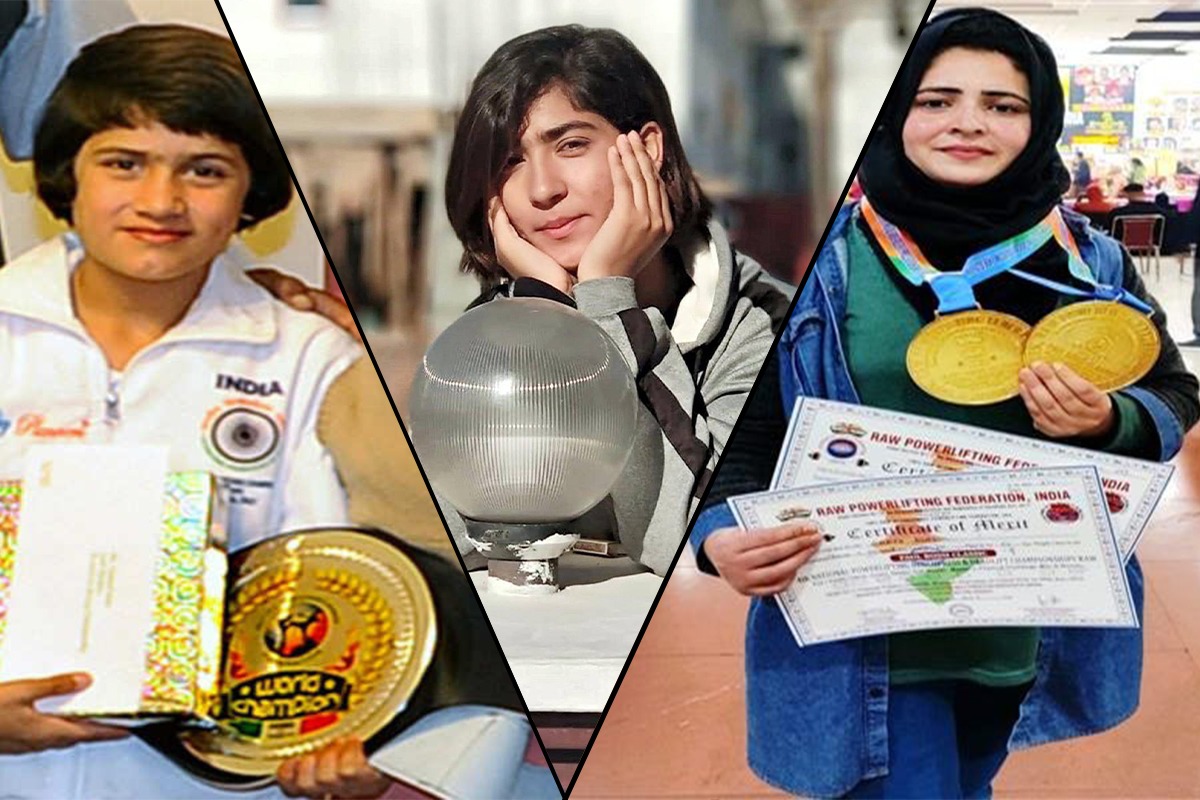

Kashmiris have come a long way since the 1990s when sports infrastructure and industry took a hit due to the Islamic Jihad

Kashmiri women have come a long way in sports, overcoming historical challenges that often discouraged their participation in physical activities. These challenges included limited opportunities, gender bias, and societal expectations that relegated Muslim women to more traditional roles, especially because of orthodox interpretations of religious scriptures. However, the landscape has evolved significantly over the years, driven by a combination of legislative changes like abrogation of Article 370, increased visibility and endorsement by brands, and the remarkable achievements of individual female athletes like the female football coach Nadiya Nighat, power lifter Arifa Bilal and kickboxer Tajamul Islam among others.
Indian female athletes have risen to prominence, breaking records, and shattering stereotypes in various sports since independence. Icons like PT Usha, who I grew up watching in the Doordarshan televised Asian Games in the 80s contributed to inspiring a generation of us to take up athletics. In the new millennium Lawn Tennis’ Saina Nehwal’s personal journey, now a biopic, is a powerful depiction of overcoming personal tribulations to win national and international recognition. Mary Kom’s achievements in boxing have shattered stereotypes of the subcontinental women as housebound, weak beings to be sequestered and bound to the hearth and home.
The Indian Army organized Kashmir’s first-ever women’s cricket league at Srinagar’s Sher-e-Kashmir Cricket Stadium last month, providing a platform for female cricketers from the region. Around 12 women’s cricket teams from different parts of Jammu and Kashmir showcased their skills and passion in the league, with the finals attended by Indian cricketer Mithali Raj and J&K Lieutenant Governor, Manoj Sinha.
The Anantnag Rebels emerged victorious in the tournament, and the final match drew a substantial crowd. This progress signifies a turning point, considering women were previously not allowed to play sports under the more than thirty-year Islamic Jihad by Pakistan against India in J&K which is still ongoing. This initiative is a major step in promoting women’s cricket in the region and inspiring girls to pursue sports as careers. It aligns with the Indian Army’s goal of empowering youth and fostering talent in the Kashmir Valley through sports.
We have come a long way since the 1990s when the sports infrastructure, industry and careers of Kashmiri athletes took a hit due to the Islamic Jihad carried out by foot soldiers of Jamaat-i-Islami cadres. Wahhabism imported from Gulf countries and advocated by tele-evangelists, overturning the centuries old Sufistic and liberal Islam, dictated that women should not be seen in sports gear or playing sports.
It took a good part of three decades, abrogation of Article 370 and extensive counter-terrorism operations to bring the lost glory of sports, cinema, and tourism back to J&K. The recent decision by the Administrative Council in Jammu and Kashmir approving the creation of the “Jammu and Kashmir Sports cadre” under the jurisdiction of the Youth Service and Sports Department is one of the latest triumphs.
This move includes the establishment of 235 positions, including 10 Gazetted posts, dedicated to the appointment of exceptional sports personalities. The objective behind this decision is to simplify the appointment process for sportspersons, encourage youth participation in sports, and acknowledge talent at both the national and international levels.
Furthermore, the government aims to make these appointments an annual occurrence to foster sports development in the Union Territory and provide more opportunities for the youth, including females. However, Kashmir still faces challenges in sports development, including infrastructure and talent nurturing, reflecting broader issues in the region’s sports priorities which includes disparities in pay and sponsorship deals compared to their male counterparts that female athletes continue to face. The gender pay gap in sports remains a significant issue, with advocacy efforts aimed at rectifying these imbalances and ensuring fair compensation for women athletes.
Despite the progress made, challenges persist, including body image pressures, unequal funding, and limited opportunities for women in coaching and leadership roles within the sports industry. Sports for Kashmir’s differently-abled persons too is in developing stages despite the laurels brought to J&K by the captain of the wheelchair bound basketball women’s team, the Beerwah girl Insha. 2023 has been a great year for advocacy, investment, and support for women’s sports and it is vital to continue this, to further advance opportunities and recognition for female athletes and to promote true gender equity in the world of athletics.